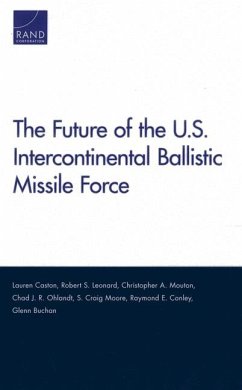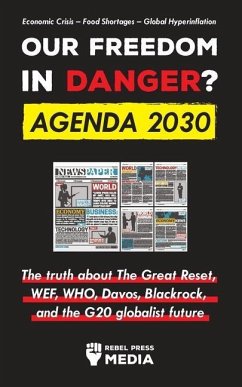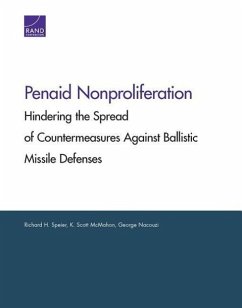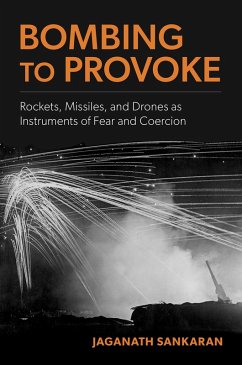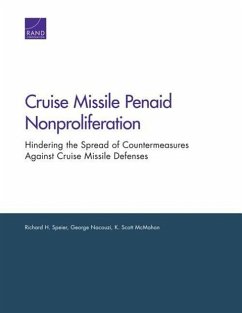Nicht lieferbar
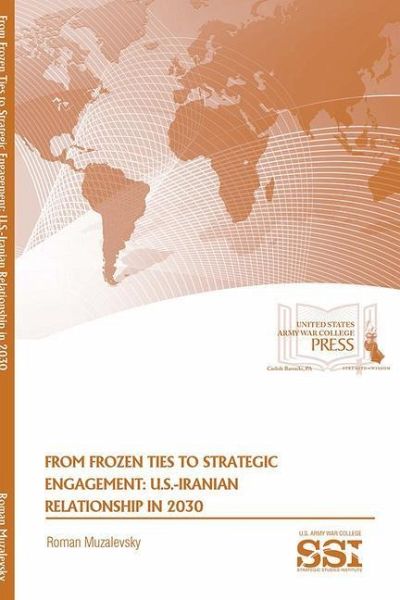
From Frozen Ties to Strategic Engagement: U.S.-Iranian Relationship in 2030
U.S.-Iranian Relationship in 2030
Herausgeber: Strategic Studies Institute (U S; Defense Dept; Army Dept (U S; Army War College (U S
Versandkostenfrei!
Nicht lieferbar
The nuclear talks between Iran and P5+1 (the five United Nations [UN] Security Council nuclear powers: the United States, Britain, France, Russia, and China, plus Germany) following most stringent sanctions against Iran to date have opened new prospects for relaxation of tensions between Tehran and the West and for a U.S.-Iranian détente in the long run. The coming to power of new presidential administrations in both the United States and Iran, the additional sanctions, major geo-economic and geo-political trends, and U.S.-Iranian economic and security cooperation imperatives all contributed ...
The nuclear talks between Iran and P5+1 (the five United Nations [UN] Security Council nuclear powers: the United States, Britain, France, Russia, and China, plus Germany) following most stringent sanctions against Iran to date have opened new prospects for relaxation of tensions between Tehran and the West and for a U.S.-Iranian détente in the long run. The coming to power of new presidential administrations in both the United States and Iran, the additional sanctions, major geo-economic and geo-political trends, and U.S.-Iranian economic and security cooperation imperatives all contributed to these dynamics. Some view the talks as a new beginning in U.S.-Iranian ties, which could herald the emergence of a U.S.-Iranian strategic relationship in the next 15 years. This work has developed three such possible strategic relationships: 1) strategic engagement involving a nuclear weapons-capable Iran; 2) comprehensive cooperation following a "Grand Bargain"; and 3) incremental strategic engagement after a nuclear deal. These relationships deliberately focus on constructive engagement, skipping the status quo and the strike on Iran as two other possible outcomes. If they pull it off by 2030, a U.S.-Iranian détente would advance external integration of the region, aiding the U.S. strategy of fostering global connectivity. It would promote resolution of conflicts and development and reconstruction of countries ravaged by wars and sectarian violence. It would also enable Washington to deploy select military assets to other locales to address other challenges while re-purposing remaining forces to face new threats in the Greater Middle East. This text's primary focus is on the U.S.-Iranian strategic relationship and negotiations. Political scientists, international relations scholars, U.S. foreign diplomats, lawmakers, policy analysts, and military strategists may be interested in this work. Students in undergraduate international affairs programs may find this book helpful with their Middle East studies curriculum, especially concerning foreign diplomacy matters. Other titles pertaining to this topic include the following: Foreign Relations of the United States, 1969-1976, V. XXVII, Iran, Iraq, 1973-1976 can be found at this link: https: //bookstore.gpo.gov/products/sku/044-000-02650-3?ctid=1040 Iran resources collection can be found here: https: //bookstore.gpo.gov/catalog/international-foreign-affairs/middle-e...






